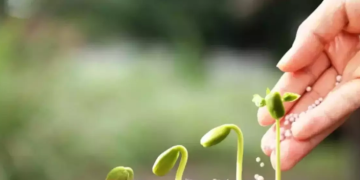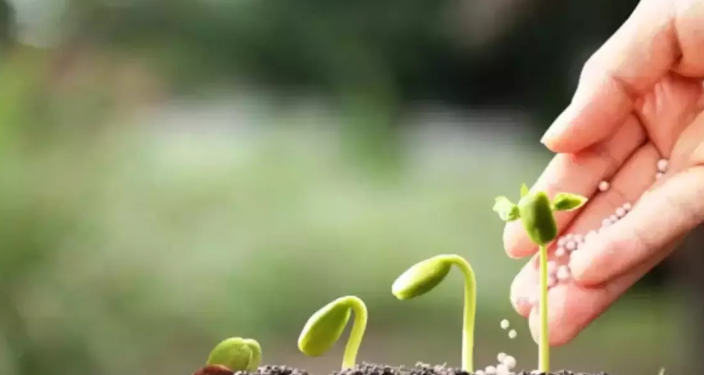#AgriculturalInnovation #NanoFertilizers #SustainableAgriculture #FarmersProfitability #EcoFriendlyFarming #GreenRevolution #IndianAgriculture #PMProgramme #UNSDGs
In the pursuit of sustainable agriculture, the agricultural landscape has witnessed a revolutionary stride with the development of Nano Urea, a novel nanofertilizer proudly made in India. Recognizing the importance of balanced fertilizer use for sustainable crop productivity, Indian scientists and engineers have successfully formulated Nano Urea, a liquid fertilizer, marking a significant leap in the country’s agricultural practices.
Enhanced Production Capacity:
Over the past nine years, the efforts dedicated to increasing urea production capacity have yielded remarkable results. The current production capacity stands at 283.74 LMT/year, a substantial increase from 207.54 LMT/year in 2013-14. This surge in production includes not only urea but also emphasizes the promotion of other essential nutrients like phosphate (P) and potash (K) through various fertilizers.
Nano Urea: A Game-Changing Innovation:
Nano Urea, the first indigenously developed nano fertilizer, has emerged as a solution to address the challenges posed by excess and imbalanced fertilizer use. Recognized under the Fertilizer Control Order (FCO) in 2021 after rigorous field trials and bioefficacy testing, Nano Urea exemplifies the spirit of “AATMANIRBHAR KRISHI” and “AATMANIRBHAR BHARAT.” With plants established in Gujarat and Uttar Pradesh, the production capacity is set to exceed 44 Crore Bottles/Year by 2025, equivalent to more than 195 LMT of conventional urea.
Cost-Effective and Environmentally Friendly:
Nano Urea presents a cost-effective alternative, priced 16% lower than conventional urea bags. The logistical advantages are evident, with increased sales attributed to its ease of transport and storage. The environmental benefits extend to reduced carbon dioxide emissions, lower energy consumption, and a positive impact on soil, water, and air quality.
Field Performance and Farmer Adoption:
Field experiments conducted by ICAR in Kharif 2021 demonstrated a yield advantage of 3-8% and significant savings for farmers. In the last three seasons, Nano Urea has been embraced by 192 lakh farmers, covering an extensive area of 150 lakh hectares. Sales data reveal a remarkable 55% increase in Nano Urea sales compared to a marginal 4% growth in conventional urea during 2022-23.
Future Prospects:
The inclusion of Nano DAP and ongoing research in nano fertilizers such as Nano NPK, Nano Zinc, Nano Copper, Nano Boron, and Nano Sulphur indicates a promising future for eco-friendly and sustainable agriculture. The adoption of nanofertilizers aligns with the objectives of PM Programme for Restoration, Awareness, Nourishment, and Amelioration of Mother Earth (PMPRANAM), contributing to reduced greenhouse gas emissions and overall cost savings.
As Nano Urea and other nanofertilizers gain momentum, their widespread adoption promises not only increased farmers’ profitability but also aligns with UN-Sustainable Development Goals (SDGs). The holistic impact of indigenously developed nanofertilizers is poised to shape a future of eco-friendly green agriculture, ensuring a “Healthy & Fit Bharat.”































